Spotlight PA is an independent, nonpartisan, and nonprofit newsroom producing investigative and public-service journalism that holds power to account and drives positive change in Pennsylvania. Sign up for our free newsletters.
Update, April 24: Democrat Eugene DePasquale, Republican Dave Sunday win primary elections for Pa. attorney general
HARRISBURG — Pennsylvania voters will elect a new attorney general this November, but Democrats and Republicans first must pick their candidates this spring.
The attorney general represents the interests of the state and the public, and defends Pennsylvania’s laws in court. In recent years, the office has defended the results of the 2020 presidential election against numerous attempts to overturn them.
Five Democrats and two Republicans are running for their party’s nomination and will appear on the April 23 primary ballot. Only registered members of those parties can cast ballots for candidates during spring elections; all voters can participate in November.
While the state Republican Party has endorsed one of the candidates, the Democratic Party has declined to do so; no candidate was able to meet the two-thirds threshold to get the endorsement.
The office has been under Democratic control since 2013, save for a handful of days in August 2016 when Republican Bruce Castor led it following the conviction of former Democratic Attorney General Kathleen Kane for perjury and abuse of office.
Since then, the office has not made headlines for controversy but rather for a major grand jury investigation of Catholic clergy abuse by Democrat Josh Shapiro, who is now Pennsylvania’s governor.
The yearslong investigation drew national and international attention for exposing how top Catholic leaders in Pennsylvania covered up child sexual abuse involving more than 1,000 victims and hundreds of priests over several decades.
The damning report prompted a chain of similar investigations nationwide and also led several Catholic dioceses in Pennsylvania to launch programs to compensate victims who were too old under state law to file lawsuits.
The office in recent years also became known for its participation in multistate investigations and litigation involving the pharmaceutical industry’s role in fueling the nation’s opioid crisis, as well as for prosecuting some natural gas companies.
Shapiro nominated his former first deputy, Michelle Henry, to complete the remainder of his four-year term as attorney general after he won the governorship in 2022. That term ends early next year, and Henry is not running for the job.
This story may be updated with additional information as the election approaches.
Skip to section
What does the attorney general do?
Pennsylvania’s attorney general oversees hundreds of employees divided among criminal, civil, and public protection divisions.
The Commonwealth Attorneys Act prescribes the office’s primary duties, which include prosecuting crimes ranging from drug trafficking to public corruption, directing statewide grand juries, defending state laws, and representing Pennsylvania if the state is audited or prosecuted federally.
The official mission of the office is to protect “life, property, and constitutional and consumer rights, so as to ensure safety and freedom for those living in and visiting the Commonwealth.”
The attorney general also sits on the Board of Pardons and appoints the state’s consumer advocate.
Elected attorneys general often bring their own prosecutorial brand to the office’s work, based on their backgrounds and particular legal areas of interest. The attorney general’s job has also served as a stepping stone for running for higher office in Pennsylvania, including the governorship.
The office is one of Pennsylvania’s three independent row offices (the other two are the state treasurer and the state auditor general), and at least one past attorney general has seized on that fact to make legal decisions that have clashed with the governor — and even the office’s prescribed duties.
That tension came to a head most notably during Kane’s tenure. In 2013, Kane refused to defend then-Gov. Tom Corbett and the state’s health secretary in a federal lawsuit challenging the constitutionality of a statewide same-sex marriage ban.
Kane was praised by progressive groups and elected officials for the decision, but also criticized by others who believed she was shirking her legal duty to defend Pennsylvania’s laws.
Though a federal judge later struck down the ban, Kane’s decision illustrated that attorneys general have great power over how cases in the office are handled, though they seldom appear in court.
Democratic candidates
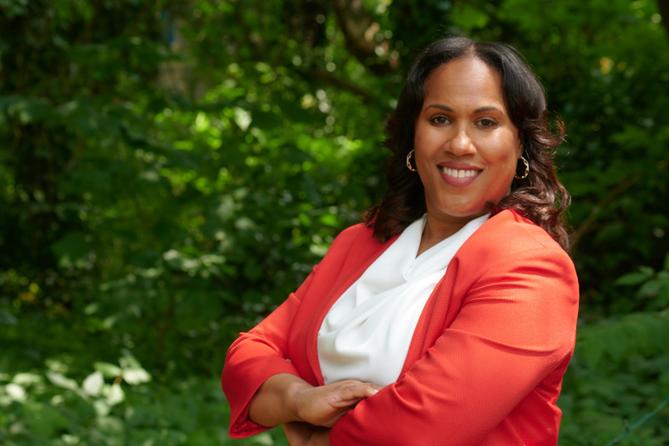
Keir Bradford-Grey
A native of Boston, Bradford-Grey attended Albany State University and Ohio Northern University Pettit College of Law.
She was appointed chief defender for Montgomery County in 2012 and was later the chief public defender in Philadelphia.
As the head of the Defender Association of Philadelphia, she led the Pre-Entry Initiative, which connects people who have been arrested to social services, per WHYY. She also oversaw the launch of Participatory Defense Hubs, which educate people facing criminal charges and their families about the justice system.
During a March debate, Bradford-Grey argued that her work representing “people in the state and federal system” demonstrated that she has what it “takes to go against well-resourced systems.”
She’s now a partner at Montgomery McCracken Walker & Rhoads, focusing on “white collar and government investigations and criminal defense.”
If elected, Bradford-Grey would be the first Black attorney general in the state’s history. She would also be the state’s first attorney general with a primarily public defender background, according to the Associated Press.
Top issues: If elected, Bradford-Grey said on her campaign website she will make “it a priority to restore the sense of security and safety to everyday working people.” She told Chestnut Hill Local that a big part of being attorney general is “consumer protection and financial protection.”
“It should not just be about getting a high conviction rate,” she told the news outlet.
Bradford-Grey also says she would protect abortion access, noting at a candidate forum that she is the only woman running. She also said she would work to educate vulnerable people about voting rights.
When asked how she would address violent crime during a March debate, Bradford-Grey said the state should hold gun retailers and suppliers accountable when they don’t follow laws, particularly background check rules. She also said she would push manufacturers to adopt technology such as microstamping, which supporters believe could make it easier to solve gun crimes.
Endorsements: Democratic members of the state legislature; local officials; organizations including Working Families Party, EMILYs List, and Teamsters Local 623.
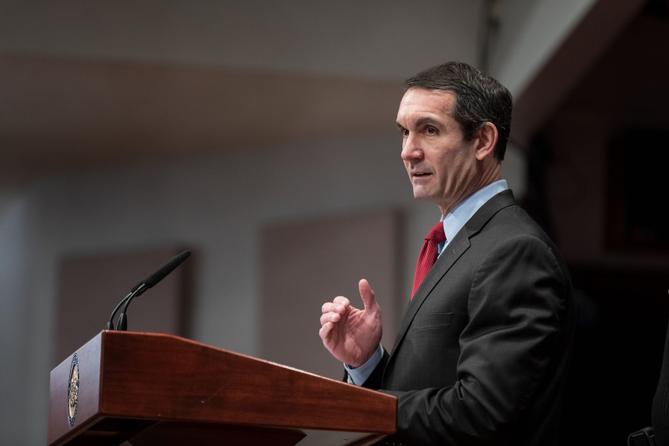
Eugene DePasquale
Born in Pittsburgh, DePasquale attended the College of Wooster, the University of Pittsburgh, and Widener University Commonwealth Law School.
He served three terms as a state House lawmaker and was the state auditor general for two terms.
In the latter role, DePasquale said his office identified roughly $103 million “in misspent or recoverable state funds,” brought attention to backlogged rape kits, and found the state’s child abuse reporting hotline failed to answer 58,000 calls between January 2014 and June 2016.
His two terms as auditor general were marked by the regular release of special reports focused on policy issues critics say were beyond the traditional scope of the office. One report laid out 12 recommendations for reducing gun violence deaths. Another estimated how much revenue the commonwealth was missing by not taxing marijuana.
DePasquale is currently an adjunct professor at the University of Pittsburgh.
He has never worked as a prosecutor, defense lawyer, or trial lawyer, according to the Associated Press. In an interview with that news outlet, he said his experience as auditor general is “the kind of leadership that Pennsylvania needs as its next attorney general.”
Top issues: DePasquale said he would prosecute hate crimes against LGBTQ people, oppose efforts to suppress votes, oppose book bans, and protect abortion access.
“I've got the spine to take on big corporations, big insurance companies, and to run complex investigations,” he said at a March debate.
When asked how he would address violent crime during the same debate, Depasquale said the state needs to focus on mental health in addition to getting guns away from “bad people.” He said the state needs to implement a so-called “red flag” law, which would allow law enforcement or family to petition a judge to temporarily take away an individual's firearms if it appears that person may harm themselves or others.
Endorsements: Democratic members of the legislature; county and local officials; former U.S. Rep. Mike Doyle (D., Pa.); organizations including Ricky’s Pride PAC, Plumbers and Pipefitters Local 520, and the Pittsburgh Federation of Teachers.
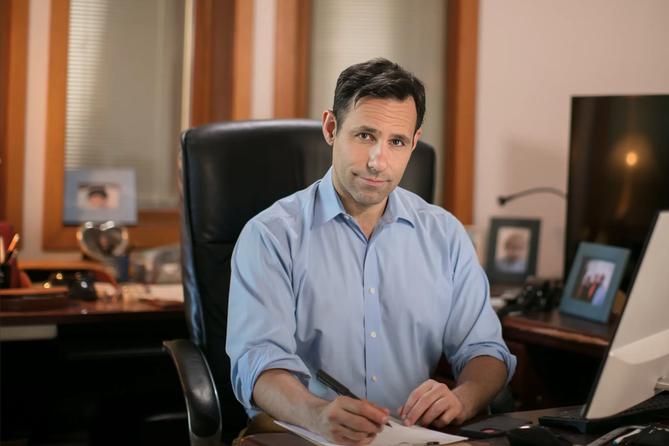
Joe Khan
Khan grew up in Philadelphia, and attended Swarthmore College and the University of Chicago Law School.
He was an assistant district attorney in Philadelphia and then an assistant U.S. attorney for the Eastern District of Pennsylvania. In the latter role, he led corruption investigations into officials from Allentown and Reading.
Khan unsuccessfully ran for Philadelphia district attorney in 2017.
He was later appointed Bucks County solicitor and served in the role for three years. During that time, he was part of a joint lawsuit with Buck County’s district attorney against chemical companies they claimed had contaminated soil and water. Another joint lawsuit alleged social media companies had harmed the mental health of the county’s children.
As solicitor, he also defended the county against an attempt by former President Donald Trump’s legal team to throw out more than 2,000 absentee ballots that contained what a judge later called “minor irregularities” like unsealed privacy envelopes.
Khan is currently a partner at Curtin & Heefner.
Top issues: On his candidate website, Khan says he wants to tackle corporate and political corruption. If elected, he says he would focus on public safety, the housing crisis, enforcing the state’s Environmental Rights Amendment, and maintaining abortion access.
He also says he would establish a Housing Justice Unit and hold “energy companies accountable for the damage they have done to our planet and the health risks facing our children.”
When asked how he would address violent crime during a March debate, Khan said he would take a similar approach to when he coordinated a federal Violent Crime Impact Team nearly two decades ago. At that time, he said, the team focused on the small group of people most responsible for violence; he said the office also brought down gun trafficking rings and solved cold cases.
Endorsements: Democratic members of the legislature; county and local officials; organizations including Clean Air Action.
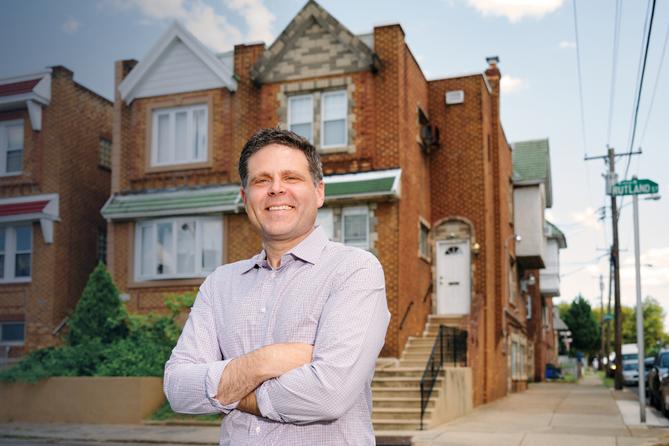
Jared Solomon
Born in Philadelphia, Solomon attended Swarthmore College and Villanova University’s Charles Widger School of Law.
After working at a Philadelphia law firm, he joined the Army Reserves as a Judge Advocate General's Corps (JAG) officer; he remains active as a defense lawyer for the Pennsylvania National Guard.
Solomon has represented the 202nd District in the state House, which encompasses part of northeast Philadelphia, since 2017.
As a state representative, Solomon has championed good-government bills targeting issues such as banning public officials from receiving most gifts, opening primaries, and tightening campaign finance rules; none have become law.
He did find some rare success, however, passing bills in the then-Republican-controlled General Assembly in his first few terms in office. That includes a 2022 law that allows local governments to offer tax incentives to spur the creation of affordable housing, and a 2017 law creating a voluntary state veterans registry to connect them with public services.
At the request of Democratic leadership, Solomon served as minority party impeachment manager for Philadelphia District Attorney Larry Krasner in 2022. Managers are charged with presenting the case for removal to the state Senate. However, no trial was held due to procedural issues and court challenges; Solomon himself voted against the effort and called it “a naked attempt to remove an elected official just because they disagree.”
Top issues: As a state representative, Solomon said his top issues are reducing crime and gun violence, promoting public schools, and defending abortion access. As attorney general, he said he would prioritize these issues on a larger scale and focus on protecting voter rights, promoting communities, and fighting corruption.
When asked how he would address violent crime during a March debate, Solomon highlighted bills he’s backed in the state House, including a proposed assault weapons ban.
He also cited state funding he helped secure for the nonprofit People Acting To Help, which works with Philadelphia police to provide diversion services, and for the Gun Violence Task Force; the latter is a collaborative effort between the Pennsylvania Office of Attorney General and Philadelphia District Attorney’s Office that provides additional resources to investigate gun crimes.
Endorsements: Democratic members of the legislature including state House Majority Leader Matt Bradford; organizations including the Pennsylvania Professional Fire Fighters Association, UFCW Local 1776 Keystone State, VoteVets, and Local 22: the Philadelphia Firefighters’ and Paramedics’ Union.
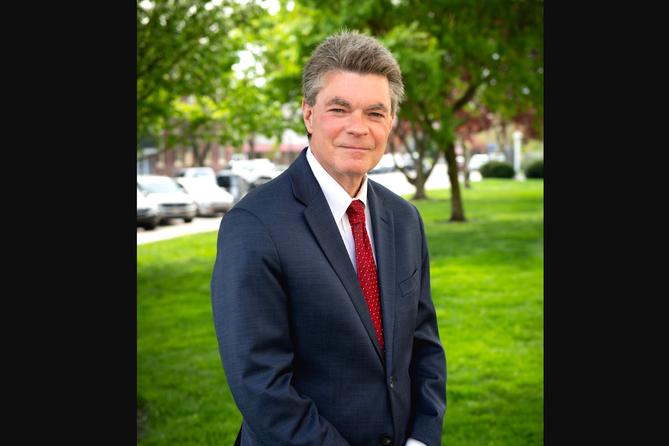
Jack Stollsteimer
A native of southeastern Pennsylvania, Stollsteimer graduated from Thomas Edison State University and Temple University’s Beasley School of Law.
Stollsteimer previously served as an assistant district attorney in Delaware County. He later was an assistant U.S. attorney for the Eastern District of Pennsylvania, where he led a gun violence task force.
He was appointed by former Gov. Ed Rendell to be the Safe Schools Advocate in Philadelphia then did two stints at the Pennsylvania Treasury: first as deputy chief counsel and director of the Bureau of Unclaimed Property, then as deputy state treasurer for Consumer Programs, according to this Linkedin.
He also worked in the private sector for several years as assistant managing director at Verus Financial, a financial planning firm.
Stollsteimer was elected Delaware County district attorney in 2019, defeating the incumbent Republican and becoming the first Democrat to hold the position.
During a recent debate, Stollsteimer highlighted his role in deprivatizing the county prison and lowering the number of people who are incarcerated there as major accomplishments.
He also cited a reduction in gun violence in the city of Chester. In October 2023, his office said that there had been a 68% reduction in gun homicides since 2020 when it launched a safe neighborhoods program.
"We want to work hand in glove with the community to solve the problems they know we can do together, and we can only solve them together," Stollsteimer said at a news conference when announcing the statistic.
In 2022, Stollsteimer’s job performance was criticized by members of the Delaware County Coalition to Abolish Death by Incarceration, which had been an ally during his first campaign, according to WHYY. Among the issues cited by the group was the office’s response to the death of 8-year-old Fanta Bility, who was shot by police as they fired into a crowd outside a high school football game.
Stollsteimer’s office initially charged two teens who were the source of the nearby gunfire that prompted police to shoot with first-degree murder; those charges were later withdrawn. Three officers pleaded guilty to reckless endangerment as part of a deal that saw manslaughter and involuntary manslaughter charges dropped.
Top issues: In a campaign announcement, Stollsteimer said he will make communities safer, repair the criminal justice system, protect abortion rights, and promote environmental and economic justice.
When asked how he would address violent crime during a March debate, Stollsteimer said he would focus on preventing people who shouldn’t have firearms from having them.
“We can't arrest our way out of these problems,” he said. “We have to bring the community and police together and find those common-ground solutions.”
Endorsements: the Pennsylvania Building and Construction Trades Council, the Philadelphia Building Trades Council, the Eastern Atlantic States Regional Council of Carpenters, and the Teamsters Joint Council 53.
Republicans
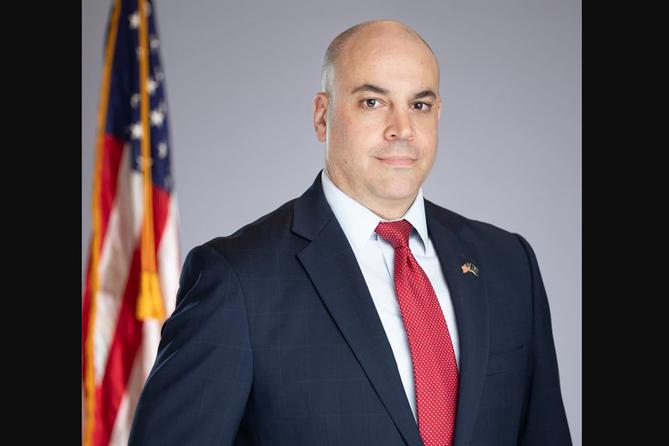
Dave Sunday
Born in Harrisburg and raised in Cumberland County, Sunday served in the U.S. Navy then attended Penn State University and Widener University Commonwealth Law School.
He clerked for Common Pleas Judge Joseph C. Adams before moving to the York County district attorney’s office. There, he was the chief deputy prosecutor of litigation.
During that time, he worked with York County’s Agency on Aging to start an Elder Abuse Task Force aimed at protecting older people from scams. He also co-founded what’s now known as the York Opioid Collaborative with the county coroner. Part of the task force’s work, according to a 2017 York Dispatch article, was to equip all police with the overdose reversal medicine naloxone.
Sunday was elected York County district attorney in 2017. He leads a team that prosecutes approximately 9,000 criminal cases annually.
The county has seen a reduction in crime and its prison population during his tenure, according to the York Daily Record. The city of York itself experienced a 36% drop in gun crime from 2022 to 2023, the news outlet reported.
“Everyone is given the opportunity to change their life,” Sunday told the paper of the York County Group Violence Intervention initiative. “The reality is, if you don’t do that, you’re going to be arrested and be prosecuted to the fullest extent of the law.
During the early months of the COVID-19 pandemic, Sunday directed local law enforcement not to issue citations to businesses that violated former Democratic Gov. Tom Wolf’s ongoing business closure order. He issued a similar mandate not to prosecute citations related to Wolf’s 2021 order requiring masking in schools.
“This order includes built-in justifications and the language of the order does not include the details of how they can be proven,” Sunday said at the time.
Top issues: Public safety and the opioid epidemic are Sunday’s top priorities. He’s pointed to his collaborative work in York County as a model, and described his philosophy as “accountability and redemption.”
During a March debate, Sunday said one of the No. 1 causes of crime is the failure to arrest, charge, and prosecute people for illegal possessions of firearms. “Because until that's done, we are never going to see a change,” he said.
Sunday said during the same debate that he does not believe the state constitution guarantees a right to abortion access, arguing that decision belongs to the legislature.
He later added, “I will follow the law, whatever that law is, as determined by the legislature.”
When asked about lingering doubts about election integrity, Sunday said that in York County he assigned detectives to investigate criminal election complaints. “And as a result of that, we were able to see … that there was not material fraud in the county of York to have changed the York County election,” he said. “I can't speak to any other place.”
Endorsements: the Pennsylvania Republican Party; the Republican Attorneys General Association; Republican state senators including President Pro Tempore Kim Ward; U.S. Rep. Lloyd Smucker; Treasurer Stacy Garrity; York Fraternal Order of Police No. 73.
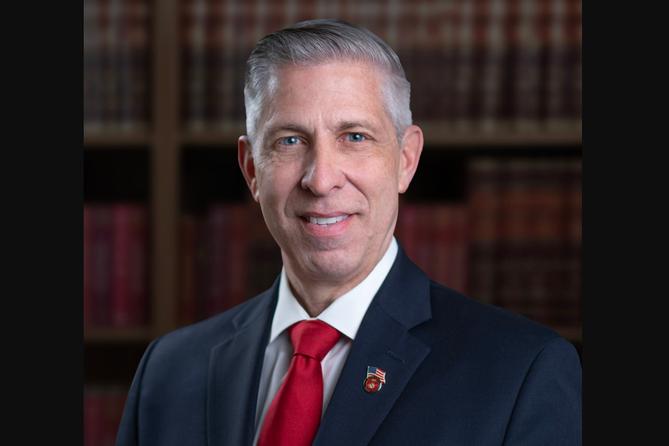
Craig Williams
Born in Alabama, Williams graduated from Duke University, the University of Florida Levin College of Law, and Columbia Law School.
During his 28-year career in the Marine Corps, he was chief prosecutor at Camp Pendleton in California.
Williams also was a federal prosecutor in the District of Colorado and Eastern District of Pennsylvania, working on “child abuse, drugs, street crime, and fraud” cases, The Inquirer reported in 2008.
He later was a lawyer for Peco Energy Co., a Philadelphia-area electric and gas utility.
Williams was elected to the Pennsylvania House in 2020 to represent District 160, which includes parts of Chester and Delaware Counties. While voters in this area have consistently supported Republicans for the state House, they have also picked Democrats at the top of the ticket.
If the 2020 presidential election had been held under the current state House map, President Joe Biden would have won District 160 by almost seven percentage points. Williams has pointed to his success in the area as a reason Republicans should support him.
In his first term, Williams introduced a bill that later became a law allowing the state National Guard to provide cybersecurity support and training to entities including state and local governments.
He’s also sponsored bills that would give the Office of Attorney General concurrent jurisdiction over gun crimes in Philadelphia — meaning the state could bring charges even if a local district attorney has declined to — and that would require individuals convicted of sex trafficking to register as sex offenders. Both passed the state House but were not considered by the Senate.
Williams also chaired the state House’s impeachment managers in the 2022 effort to remove Philadelphia District Attorney Larry Krasner from office. Managers are charged with presenting the case for removal to the state Senate. However, no trial was ever held due to procedural issues and court challenges.
With the state House under Democratic control, Williams has occasionally voted for that party’s priorities, such as expanding state background checks to all firearm purchases. However, Williams also voted against two other firearms-related bills, including one that would establish emergency risk protection orders, which would let law enforcement or family petition a judge to take away an individual's guns if they are deemed a threat.
Top issues: Williams has made crime, particularly in Philadelphia, and gun violence the centerpieces of his campaign.
He wants the legislature to give the attorney general concurrent jurisdiction over gun crimes, meaning the state could bring charges even if a local district attorney has declined to. He has introduced a bill that would give the AG’s office that power in Philadelphia, and during a March debate, he said he would want to expand such power to “other cities where these progressive district attorneys are refusing to prosecute gun crimes.”
During that same debate, Williams said he does not believe the state constitution guarantees a right to abortion access, arguing that decision belongs to the legislature.
“My role as the attorney general will be to enforce the constitution and make sure that anything that is done to try to circumvent the constitution with respect to the Abortion Control Act, that I'll go in and defend the constitution,” he said.
When asked about lingering concerns about election integrity and Shapiro’s approach to litigation on that topic in 2020, Williams co-opted Shapiro’s term: “I found [Shapiro] to be ‘uniquely unserious’ in his tweets and his mannerisms in the way that he dealt with half of Pennsylvania who disagreed with the outcome of the election.”
Williams said the attorney general should investigate all allegations of fraud and “convince all of Pennsylvania that they're operating in a fair system.”
Endorsements: state House Republican lawmakers including Minority Leader Bryan Cutler.
Félicie Jungels, Maya Mehrara, and Sophia Takla are graduate students at New York University in the American Journalism Online program. They reported this story as part of a collaboration with Spotlight PA.
Spotlight PA’s Stephen Caruso, Angela Couloumbis, and Sarah Anne Hughes contributed reporting.
